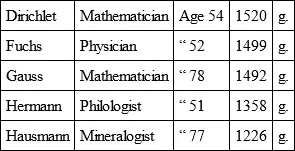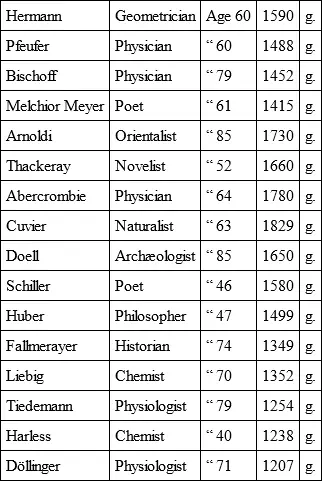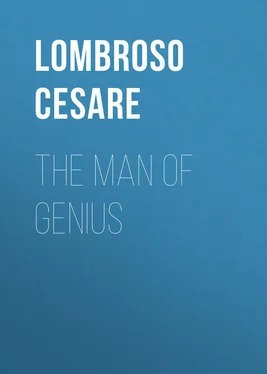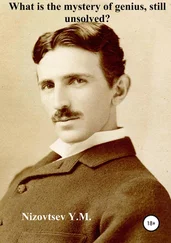Cesare Lombroso - The Man of Genius
Здесь есть возможность читать онлайн «Cesare Lombroso - The Man of Genius» — ознакомительный отрывок электронной книги совершенно бесплатно, а после прочтения отрывка купить полную версию. В некоторых случаях можно слушать аудио, скачать через торрент в формате fb2 и присутствует краткое содержание. Жанр: foreign_antique, foreign_prose, на английском языке. Описание произведения, (предисловие) а так же отзывы посетителей доступны на портале библиотеки ЛибКат.
- Название:The Man of Genius
- Автор:
- Жанр:
- Год:неизвестен
- ISBN:нет данных
- Рейтинг книги:5 / 5. Голосов: 1
-
Избранное:Добавить в избранное
- Отзывы:
-
Ваша оценка:
- 100
- 1
- 2
- 3
- 4
- 5
The Man of Genius: краткое содержание, описание и аннотация
Предлагаем к чтению аннотацию, описание, краткое содержание или предисловие (зависит от того, что написал сам автор книги «The Man of Genius»). Если вы не нашли необходимую информацию о книге — напишите в комментариях, мы постараемся отыскать её.
The Man of Genius — читать онлайн ознакомительный отрывок
Ниже представлен текст книги, разбитый по страницам. Система сохранения места последней прочитанной страницы, позволяет с удобством читать онлайн бесплатно книгу «The Man of Genius», без необходимости каждый раз заново искать на чём Вы остановились. Поставьте закладку, и сможете в любой момент перейти на страницу, на которой закончили чтение.
Интервал:
Закладка:
After all this testimony, it does not seem to me that Voltaire and Corancez were altogether wrong in affirming that Rousseau had been mad, and that he confessed it himself. Numerous passages in the Confessions and in Grimm’s letters allude to other affections such as paralysis of the bladder and spermatorrhœa, which probably originated in the spinal cord, and which certainly aggravated his melancholia. It must also be remembered that from childhood, Rousseau, like so many other subjects of degeneration, showed sexual precocity and perversion; it appears that he had no pleasure in his relations with women unless they beat him naked, like a child, or threatened to do so. 177 177 Revue Philosophique , 1883.
Nicolaus Lenau, one of the greatest lyric poets of modern times, ended, forty years ago, in the asylum of Döbling at Vienna, a life which from childhood shows a mingling of genius and insanity.
He was born in 1802 in Hungary, the son of a proud and vicious aristocrat, and of a melancholy, sensitive, and ascetic mother. At an early age he manifested tendencies to sadness, to music, and to mysticism. He studied medicine, law, agriculture, and especially music. In 1831 Kerner remarked in him strange fits of sadness and melancholy, and noted that at other times he would spend whole nights in the garden playing his favourite violin. “I feel myself,” he wrote to his sister, “gravitating towards misfortune; the demon of insanity riots in my heart; I am mad . To you, sister, I say it, for you will love me all the same.” This demon induced him to go, almost aimlessly to America. He returned to find himself fêted and received with gladness by all; but hypochondria, in his own words, had planted its teeth deep in his heart, and everything was useless. 178 178 Schurz, Lenaus Werke , vol. i. p. 275.
And, in fact, this unhappy heart had an attack of pericarditis, from which it recovered only imperfectly. From that time sleep, once the only medicine for his troubles, ceased to visit him; every night he is surrounded by terrible visions. “One would say,” he wrote, in a truly insane fashion, “that the devil is hunting in my belly. I hear there a perpetual barking of dogs and a funereal echo of hell. Without joking, it is enough to make one despair.”
That misanthropy which we have already noted in Haller and Swift and Cardan and Rousseau took possession of Lenau in 1840 with all the accompaniments of mania. He is afraid and ashamed of men, disgusted with them. Germany was preparing bouquets and triumphal arches in his honour, but he fled, and without any cause went to and fro from one country to another; he was causelessly angry and impatient, and felt himself incapable of work; non est firmum sinciput , it seemed, as he himself said; at the same time his appetite became as insane as his brain. He returned with a strange taste to the mysticism of his childhood, wished to study the Gnostics, and read over again the stories of sorcerers which he had found so attractive in his youth, while he drank coffee enormously and smoked excessively. It was incredible, he observed, how in moving his body, in lighting or changing a cigar, new ideas arose within him. He wrote during entire nights, wandered, journeyed, meditated a marriage, projected great works, and executed none.
It was the last flickering of a great spirit; in 1844 Lenau complained more and more of headache, of constant perspiration, of extreme weakness. His left hand and the muscles of the eyes and cheeks were paralysed, and he began to write with orthographic errors and quibbles, as Wie gut es mir gut
Конец ознакомительного фрагмента.
Текст предоставлен ООО «ЛитРес».
Прочитайте эту книгу целиком, купив полную легальную версию на ЛитРес.
Безопасно оплатить книгу можно банковской картой Visa, MasterCard, Maestro, со счета мобильного телефона, с платежного терминала, в салоне МТС или Связной, через PayPal, WebMoney, Яндекс.Деньги, QIWI Кошелек, бонусными картами или другим удобным Вам способом.
1
Magnan, Annales Médico-Psychologiques , 1887; Lombroso, Tre Tribuni , pp. 3-9, 16-23, 148-150; Saury, Études Cliniques sur la Folie Héréditaire , 1886.
2
Psychologie du Génie , 1883.
3
De Renzis, L’opera d’un Pazzo , 1887.
4
Revue des Deux Mondes , 1886.
5
De Pronost. , i. p. 7.
6
Problemata , sect. xxx.
7
Horace, Ars Poet. , 296-297.
8
Observationes in Hom. Affect. , 1641, lib. 10, p. 305. More singular examples in Italy were collected by F. Gazoni, in the Hospitale dei folli incurabili , 1620.
9
Diderot, Dictionnaire Encyclopédique .
10
I Mattoidi e il Monumente a Vittorio Emanuele , 1885.
11
Magnan, Annales Médico-psych. , 1887; Déjerine, L’Hérédité dans les Maladies Mentales , 1886; Ireland, The Blot upon the Brain , 1885.
12
I Caratteri dei Delinquenti , 1886, Turin.
13
Méd. de l’Esprit , ii.
14
Lamartine, Cours de Littérature , ii.
15
Revue Britannique , 1884.
16
Canesterini, Il Cranio di Fusinieri , 1875.
17
Plutarch, Life of Pericles , iii.
18
Kupfer, “Der Schädel Kants,” in Arch. für Anth. , 1881.
19
Welcker, Schiller’s Schädel , 1883.
20
Mantegazza, Sul Cranio di Foscolo , Florence, 1880.
21
Turner, Quarterly Journal of Science , 1864.
22
De Quatrefages, Crania Ethnica , Part i. p. 30.
23
Zoja, La Testa di Scarpa , 1880.
24
Sul Cranio di Volta , 1879, Turin.
25
Welcker, Schiller’s Schädel , 1883.
26
Revue Scientifique , 1882.
27
Wagner ( Das Hirngewicht , 1877) gives these measurements of scientific men of Gottingen: —

Bischoff ( Hirngewichte bei Münchener Gelehrten ) gives the following measurements: —

The measurement of the cerebral area often gives superiority even to those men of genius who present a feeble weight. Fuchs had a cerebral surface of 22,1005 square c. and Gauss of 21,9588; while with the same weight the same surface in an unknown woman was 20,4115 and in a workman 18,7672.
Читать дальшеИнтервал:
Закладка:
Похожие книги на «The Man of Genius»
Представляем Вашему вниманию похожие книги на «The Man of Genius» списком для выбора. Мы отобрали схожую по названию и смыслу литературу в надежде предоставить читателям больше вариантов отыскать новые, интересные, ещё непрочитанные произведения.
Обсуждение, отзывы о книге «The Man of Genius» и просто собственные мнения читателей. Оставьте ваши комментарии, напишите, что Вы думаете о произведении, его смысле или главных героях. Укажите что конкретно понравилось, а что нет, и почему Вы так считаете.












